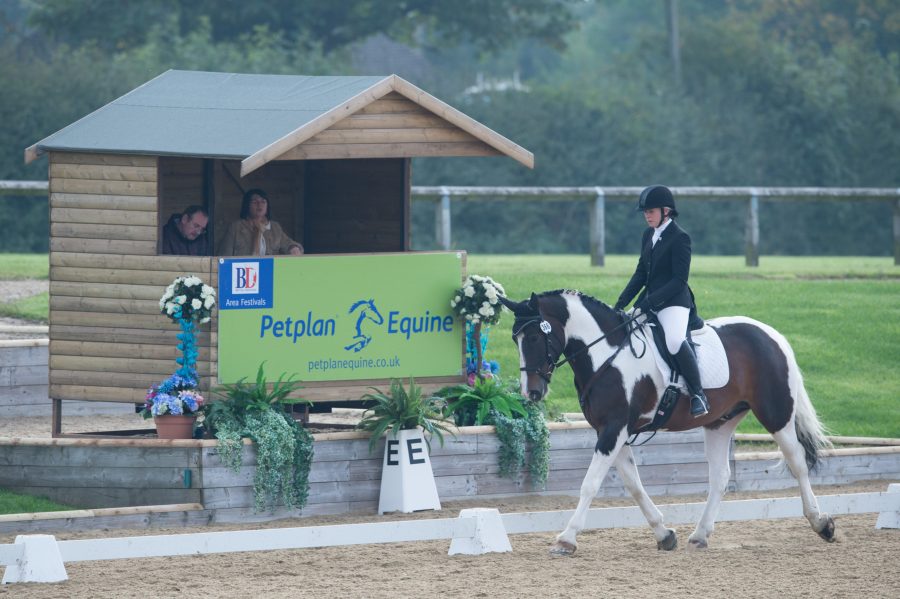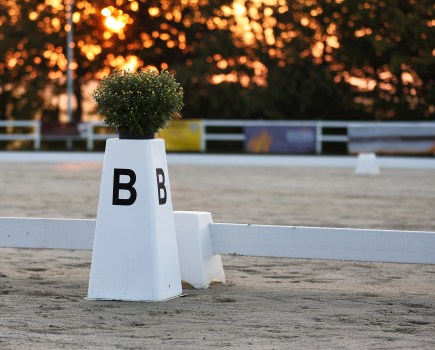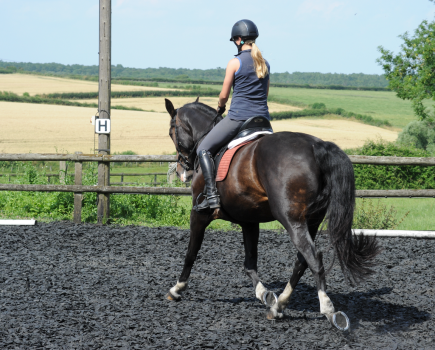In partnership with Petplan Equine
It’s completely normal to suffer with competition jitters, but nerves can hamper you enjoying a day with your horse. This can not only interfere with your performance, but also how much fun you have. Whether you’re worried you might knock a pole in your showjumping round, forget your dressage test or know you’ll have butterflies in your stomach in the start box on a cross-country course, pre-competition nerves can turn something which was supposed to be fun into a stressful event.
In the following video, equestrian mental performance coach Annika McGivern shares what you can do to control your anxiety before a competition so that you enjoy your day and perform at your best.
Symptoms of competition nerves
“Pre-test anxiety is something that’s super common and affects so many of us as riders,” says Annika. “We can be feeling pre-test anxiety if we’re feeling extra tension in our body — this can pass down into our horse and cause them to be tense.
“Another really common symptom if that we might feel fuzzy headed or have difficulties thinking clearly, and often a result of that can be that we forget our test.”
Not only can you overcome these feelings, but you can master them to improve your performance.
“The goal is to be able to calm our minds without losing that edge to our focus that allows us to stay in the zone and get the most out of ourselves and our horse,” shares Annika.
Fight or flight response
Anxiety stems from perceiving a situation as a threat, which puts our brain into fight or flight mode.
“This fight or flight mode means that we become focused on the stories around what’s happening, such as:
- ‘Are we going to fail?’,
- ‘Are we going to make a mistake?’,
- ‘Might we let ourselves down or let someone we care about down?’,
- ‘What if we don’t measure up to expectations?’,
- ‘What if someone is judging us when we ride?’.
“When we’re in this mindset, we become hyper-focused on these stories and less focused on the task at hand of actually riding,” explains Annika. “This can make you a less effective rider, as you’re not concentrating in the moment. It can make you forgetful or less confident and decisive.”
Changing your focus
“The solution lies in where we’re choosing to place our focus and also in how we’re choosing to perceive the situation,” says Annika. “So we have a dressage test to ride in front of us, and this is essentially a challenge — a challenge that we’re facing. The choice lies in how are we choosing to perceive that challenge. Is that challenge a threat, or is that challenge an opportunity, possibly even a positive opportunity that we’re choosing for ourselves?”
Our brain naturally wants to perceive a challenge as a threat, so it can take some time and practise to overcome this and see things in a positive light.
“Focus on the opportunity of this challenge, the good things about this challenge and all the things that we’re choosing – the reasons why we have actually put ourselves in this position where we’re now facing this challenge,” advises Annika.
Re-framing challenges as positive opportunities
There is a series of steps to follow to do this.
1 Acknowledge that your thoughts are not always true
“When we’re in a state of anxiety our mind can fill with a lot of fearful and anxious thinking, and if we allow those thoughts to seem true, then they shape our reality and keep us stuck in that anxious place,” explains Annika. “So we have to acknowledge that our thoughts are not always true — those anxious thoughts, those worried stories that are filling your mind — they aren’t true, they are just your brain’s way of trying to anticipate problems and threats as a way of trying to keep you safe.”
Once you’ve identified that the thoughts aren’t true, it’s time to let them go and choose what you do want to focus on.
2. Recognise your choice
“We need to learn to re-frame all challenges as positive opportunities instead of threats or opportunities to fail or make mistakes,” says Annika. “We do this by recognising that we’re choosing the challenge. The challenge is the journey or pathway to grow – we cannot grow without challenging ourselves.”
For many of us, riding and competing were dreams at one point – focus on how this dream is now a reality, and you’re living it.
3. Re-align your focus
“As we’re learning to do this, we may have to repeatedly catch ourselves in that anxious focus and bring ourselves back to that positive challenge mindset over and over again,” says Annika. “That’s completely normal. The more we practise re-aligning our focus with the fact that this is a positive challenge, the easier it’ll be to keep our mind and our focus there for longer periods of time. So it’s all about really anchoring yourself in the present moment.”
4. Build a ritual or routine
“This routine needs to be something that allows you to pause and ground yourself in the present moment and disconnect from any worrying stories that may be circling around your head,” says Annika. “One way to do this is to pause somewhere and take a couple of really nice ground breathes right down into your stomach. Breathe in through your nose, right down into your belly button, and exhale through your mouth. Those breathes are going to stimulate your vagus nerve, which helps your body to relax.
“Consciously release any tension in your body and remind yourself ‘I’m choosing to be here, I’m choosing to engage in this challenge’,” adds Annika.
You can do this before you mount up, in the warm up or before you head into the ring.
What not to do
It can be tempting to try and overcome our nerves by downplaying how important something is – but this can actually affect our performance.
“It doesn’t work because it’s not true; we do care, and it’s important that we acknowledge that these moments are important to us and it does matter how we do, the effort we put in and the experience we have,” says Annika.
So what should you do instead?
“It’s important to recognise that true performance exists in between the balance of caring and believing that what you’re doing is important and that this moment matters, but reminding yourself that it’s not life or death,” says Annika. “The experience of this moment is going to move you forwards towards your goals, so we have to open ourselves up to experience that moment fully, knowing that it’s ok if we make mistakes so long as we manage them, learn from them and keep moving forward.”
Find out more about Annika and Petplan Equine Area Festivals








